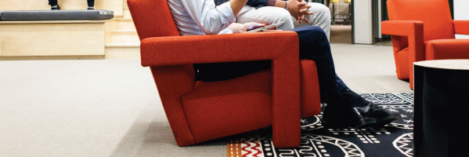June 22, 2022
People try to claim shared desks by leaving personal stuff on them
 Workers place personal items such as photographs on their desks in order to resist a change to a shared workstations or hot desking, according to new research from emlyon business school. The research found that employees believed is the most effective approach to show their dissatisfaction and halt the change to a new way of working involving shared desks is by passively utilising their personal items to claim space. These are the findings of research by David Courpasson, Professor of Sociology at emlyon business school, alongside colleagues from Universite Catholique de Louvain and published in Human Relations Journal. More →
Workers place personal items such as photographs on their desks in order to resist a change to a shared workstations or hot desking, according to new research from emlyon business school. The research found that employees believed is the most effective approach to show their dissatisfaction and halt the change to a new way of working involving shared desks is by passively utilising their personal items to claim space. These are the findings of research by David Courpasson, Professor of Sociology at emlyon business school, alongside colleagues from Universite Catholique de Louvain and published in Human Relations Journal. More →





















 Around two thirds of professionals say they are ‘highly likely’ to leave their job this year due to a lack of face time with leaders within their organisation. Following the announcement yesterday from Government that working-from-home restrictions will be dropped, an annual employee survey from recruiter
Around two thirds of professionals say they are ‘highly likely’ to leave their job this year due to a lack of face time with leaders within their organisation. Following the announcement yesterday from Government that working-from-home restrictions will be dropped, an annual employee survey from recruiter 
 Microsoft’s new
Microsoft’s new 
 People in the UK feel overwhelmed by the amount of data available to them when making critical decisions at work, according to a new study by
People in the UK feel overwhelmed by the amount of data available to them when making critical decisions at work, according to a new study by 








January 31, 2022
From the archive: How organic design can reflect the way people move around a building
by Paul Goodchild • Comment, Workplace design
More →